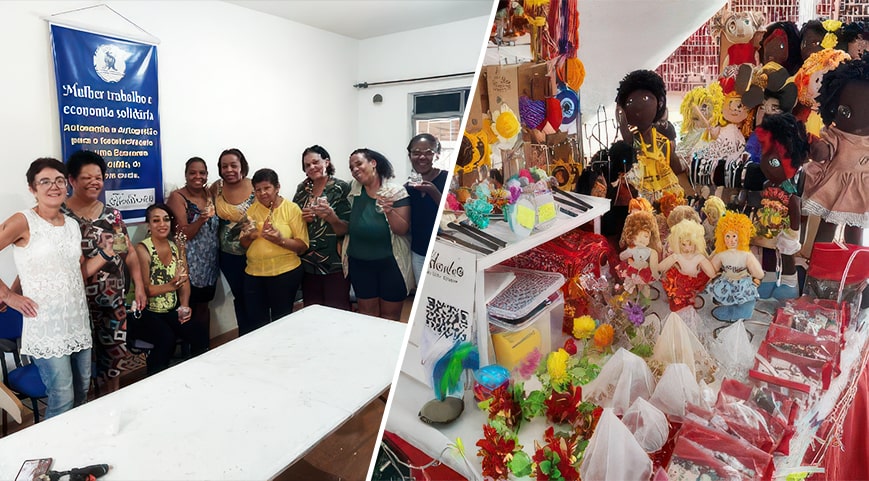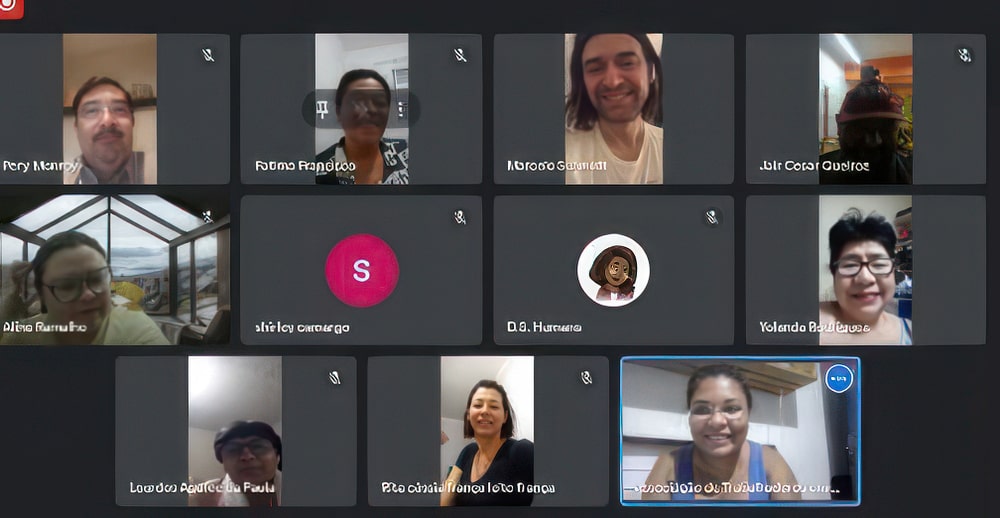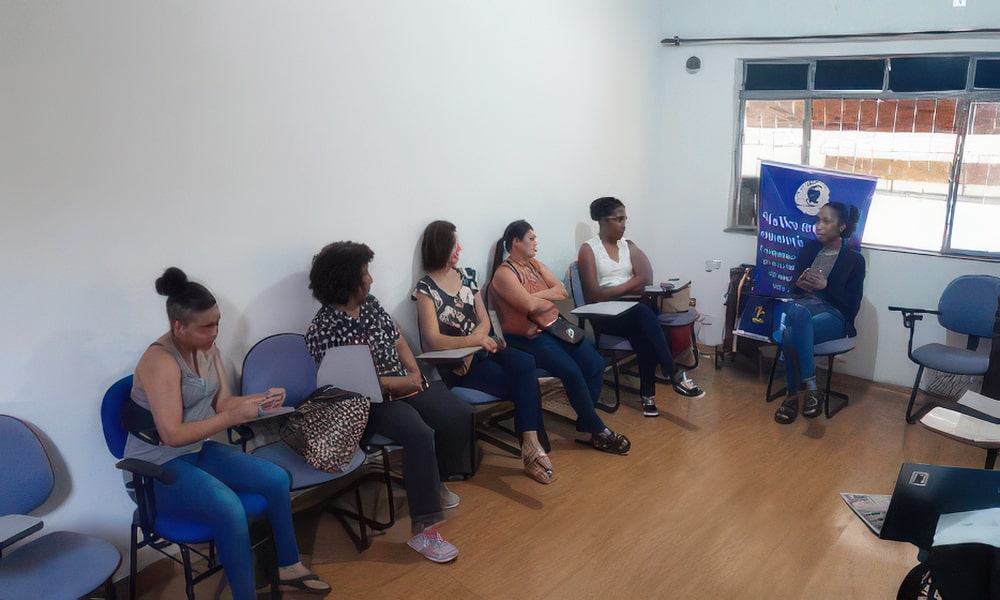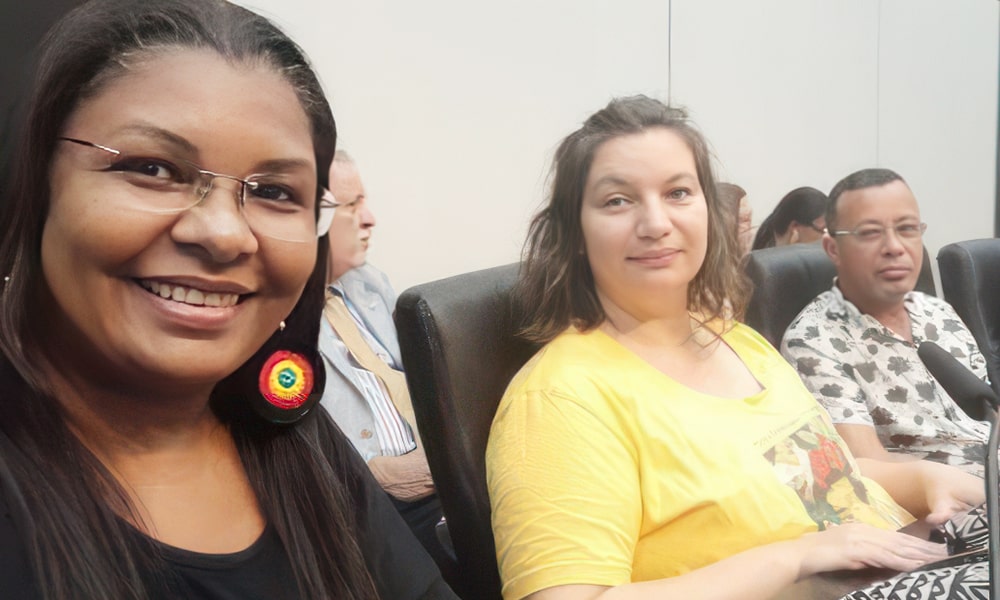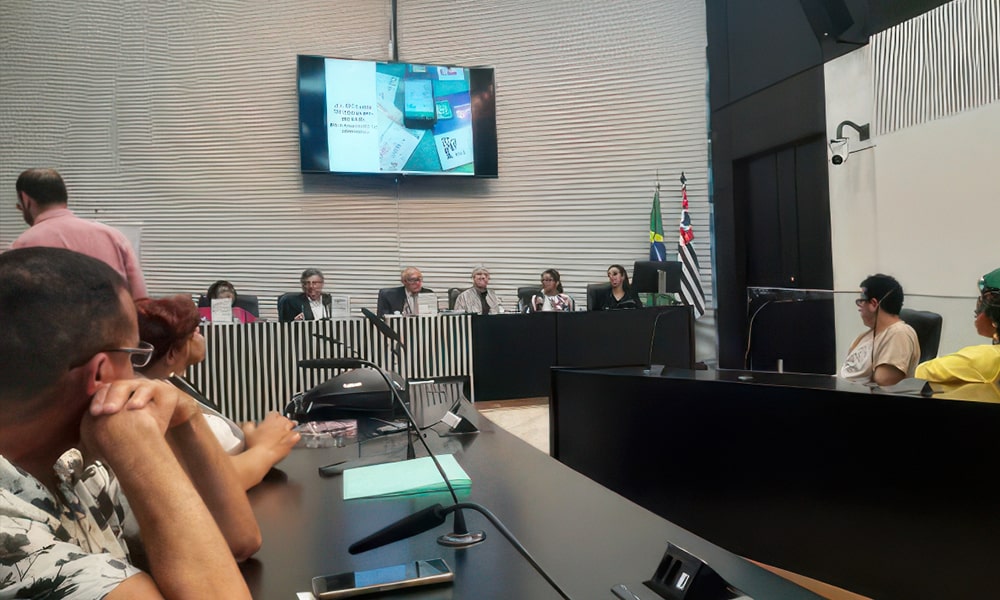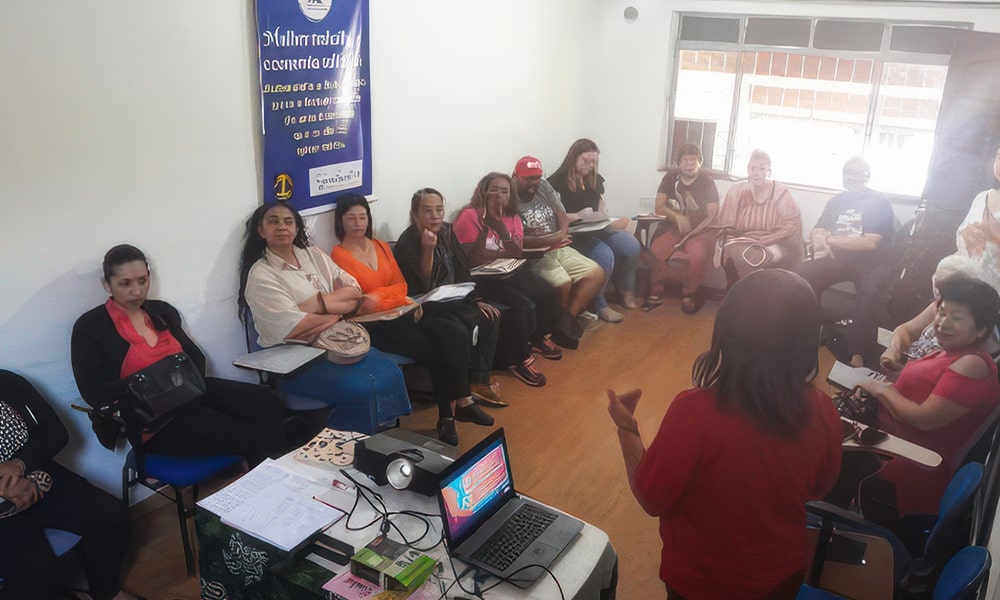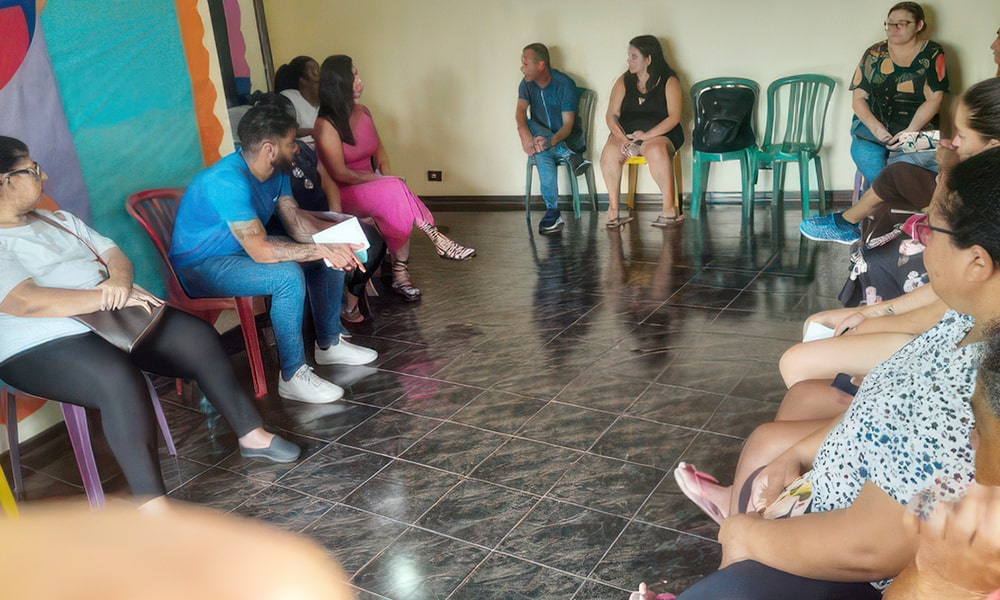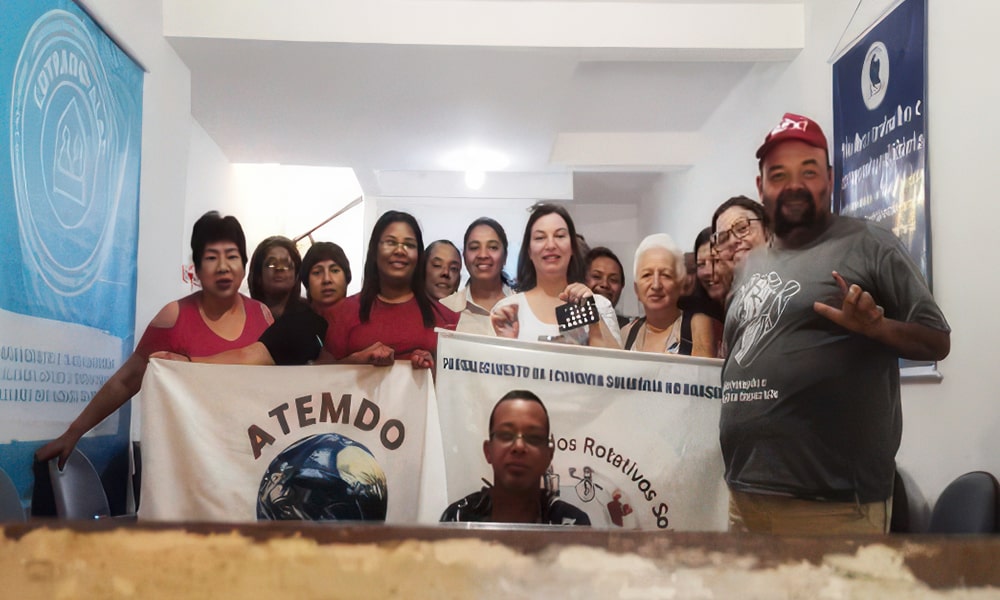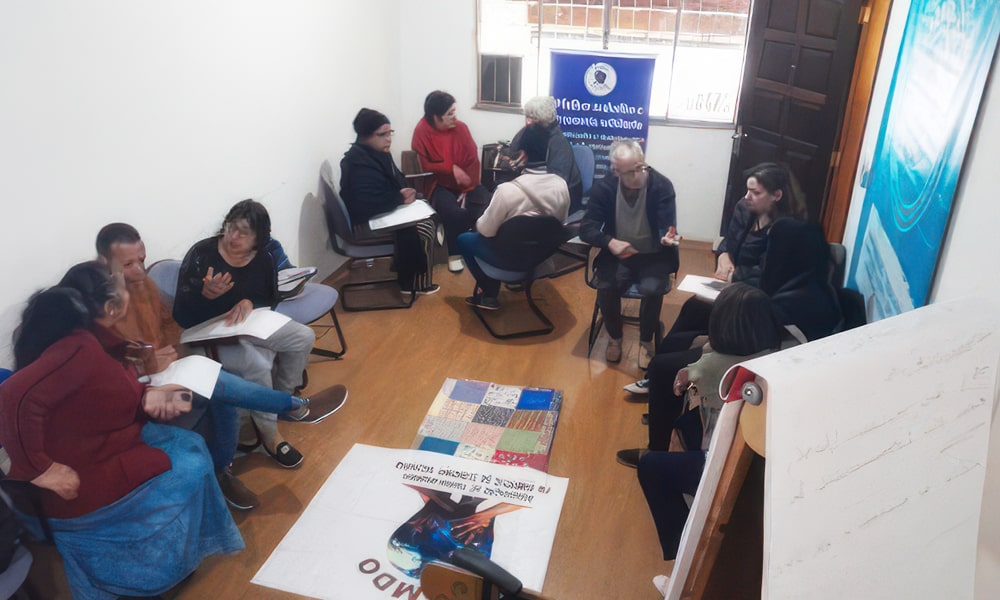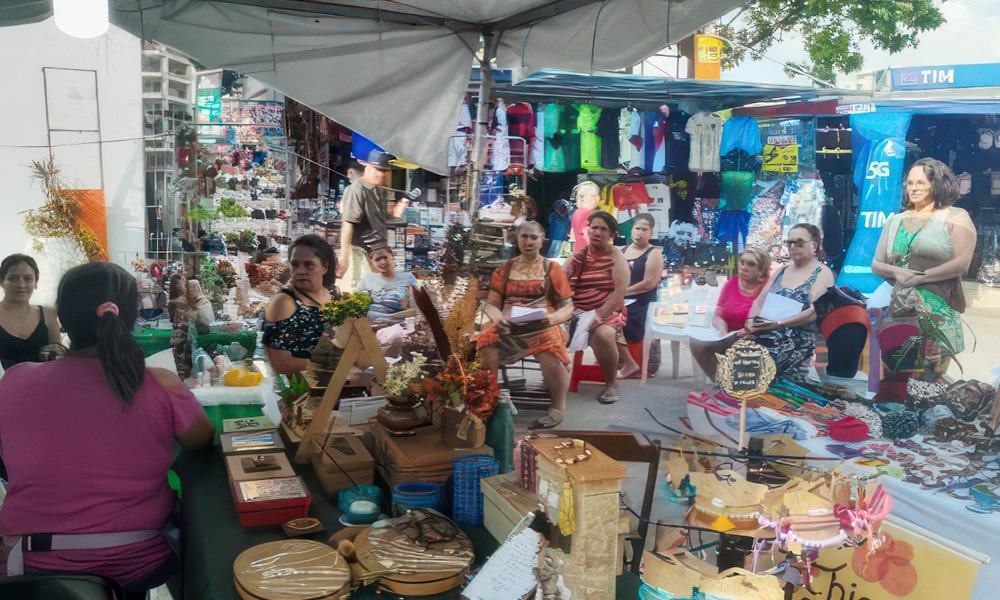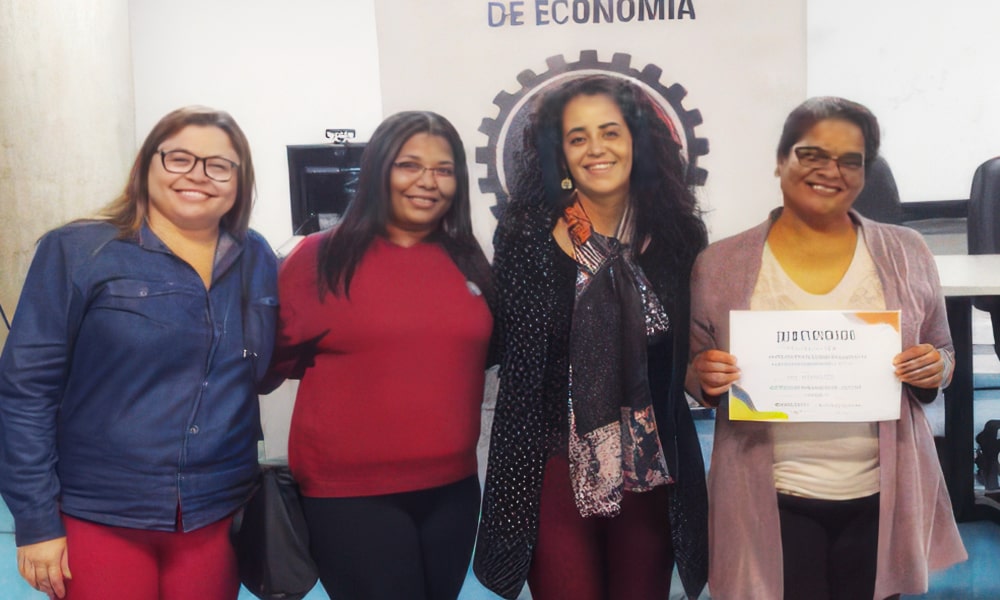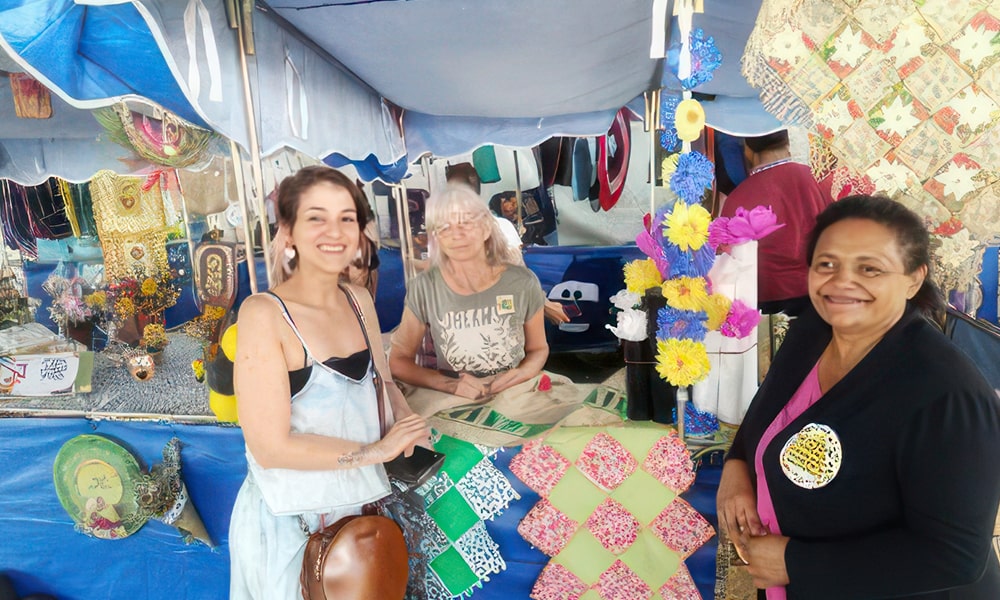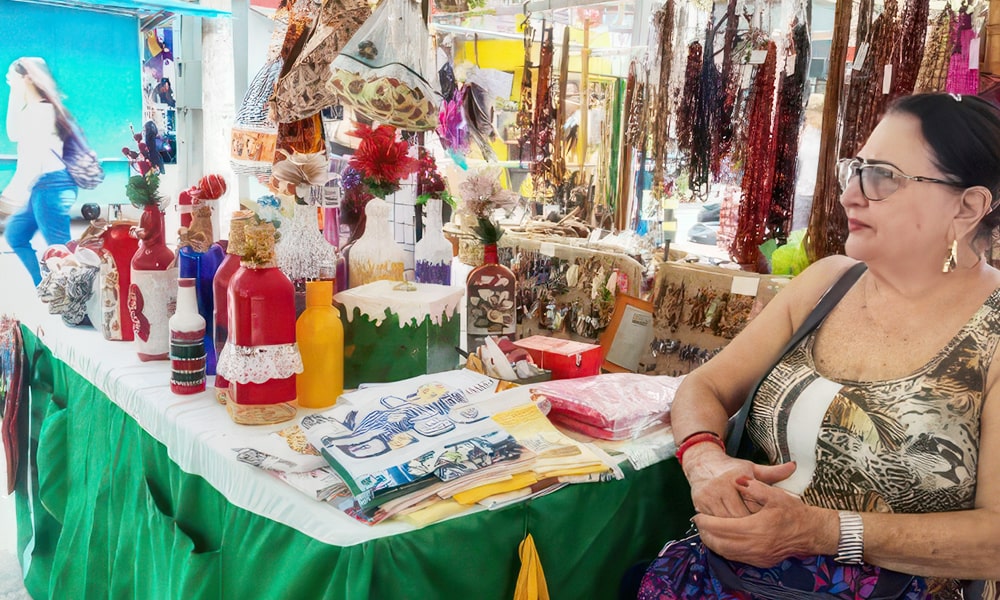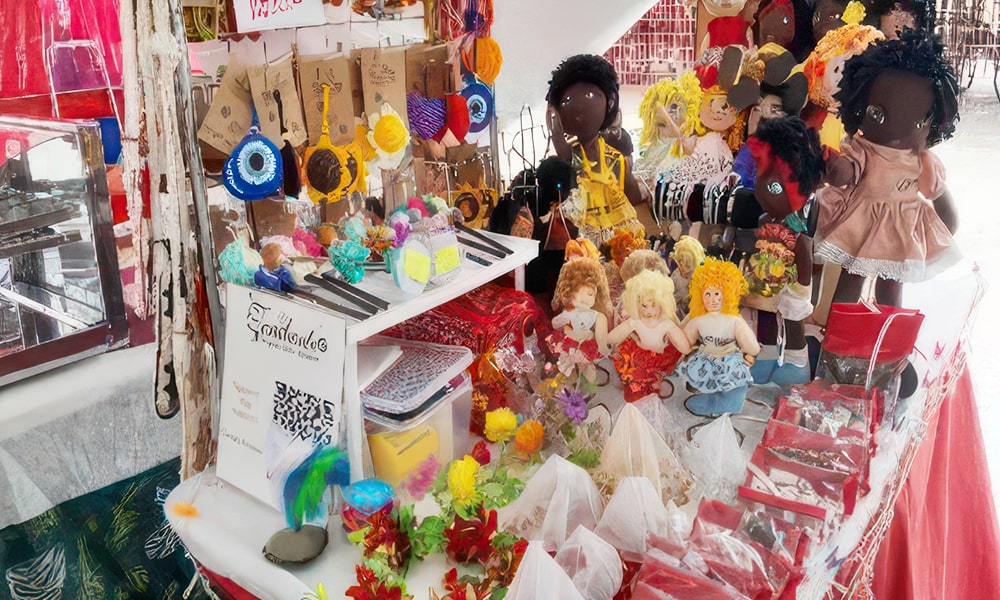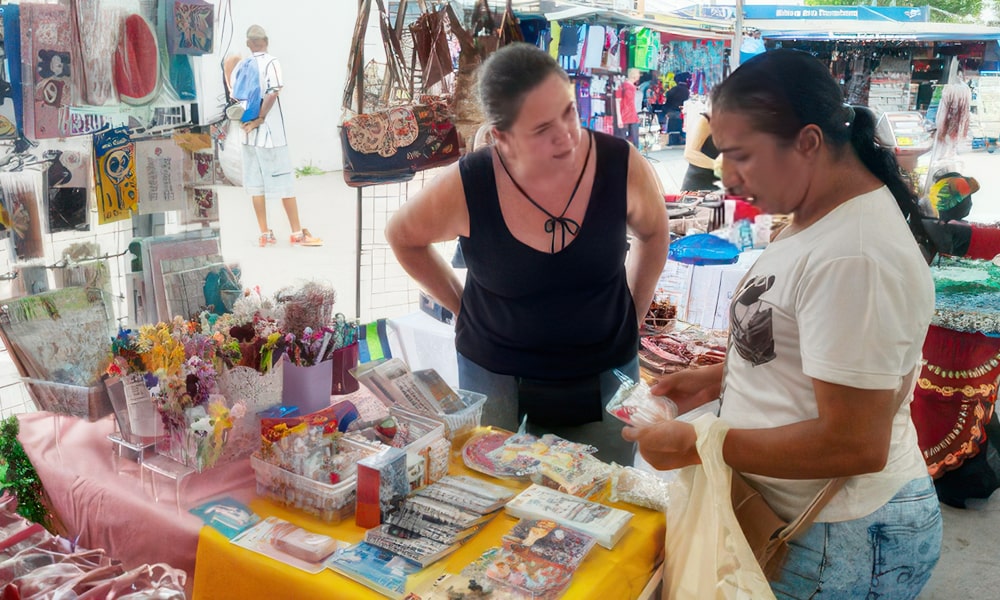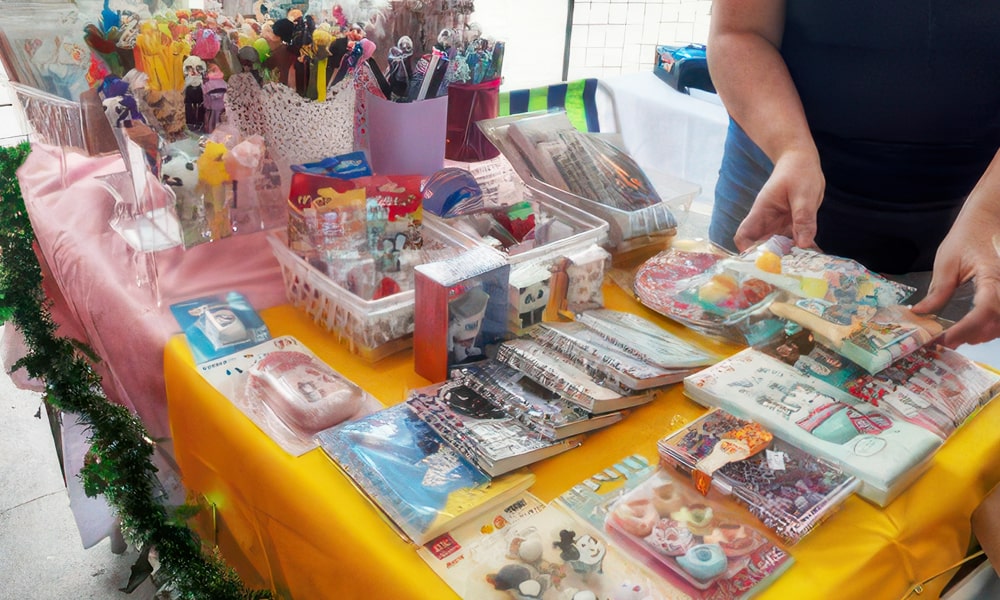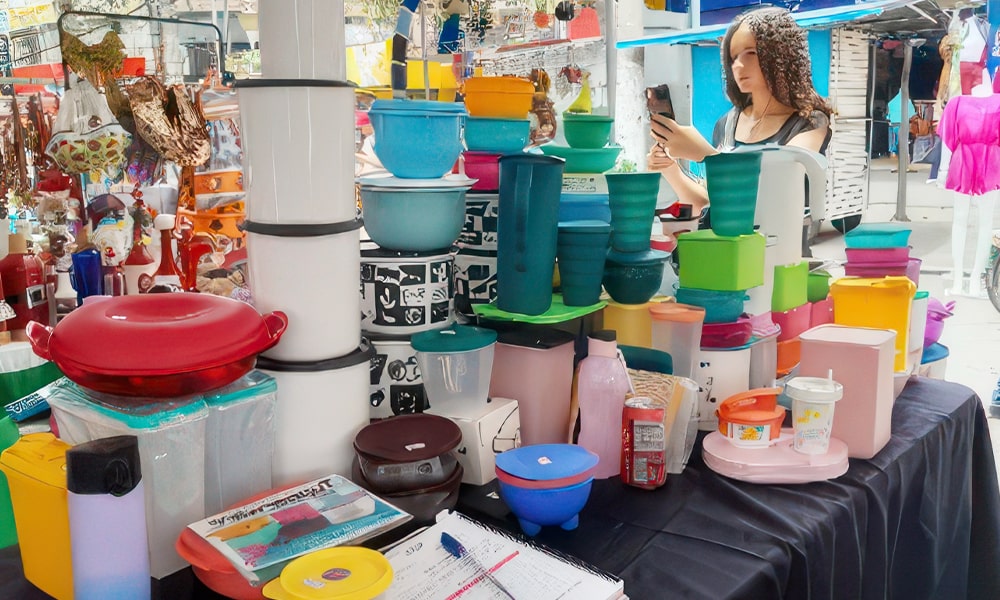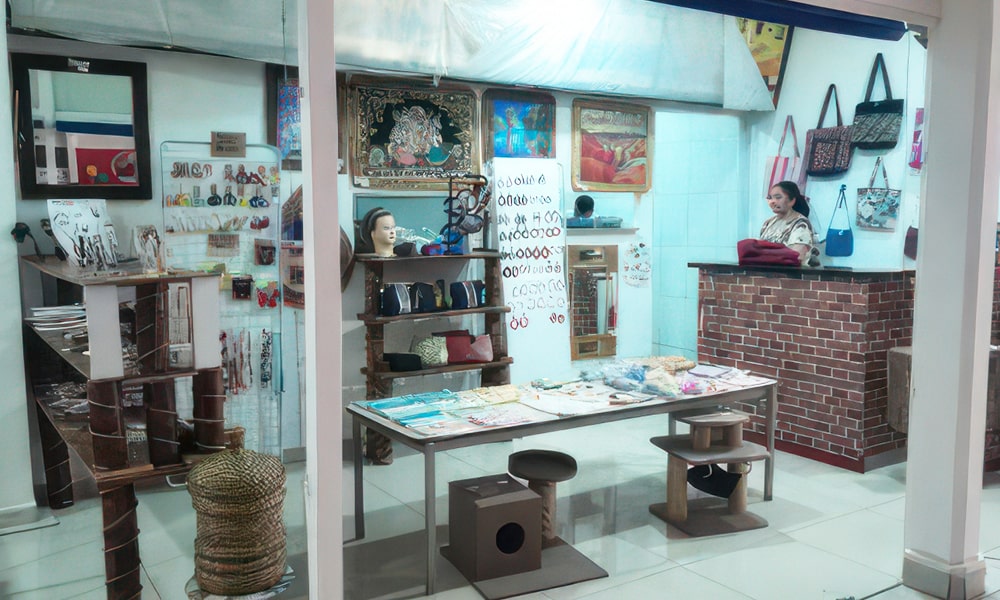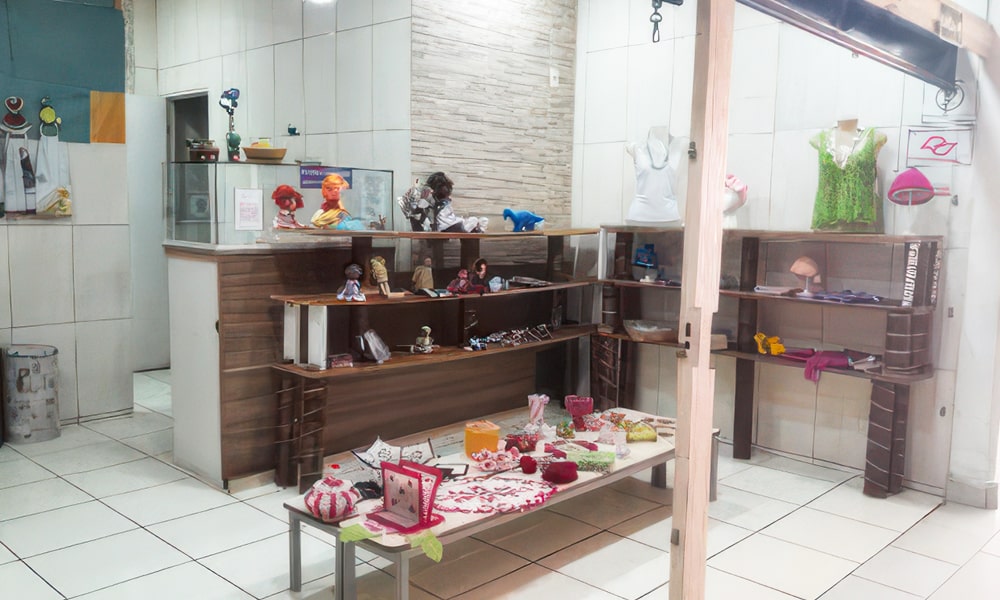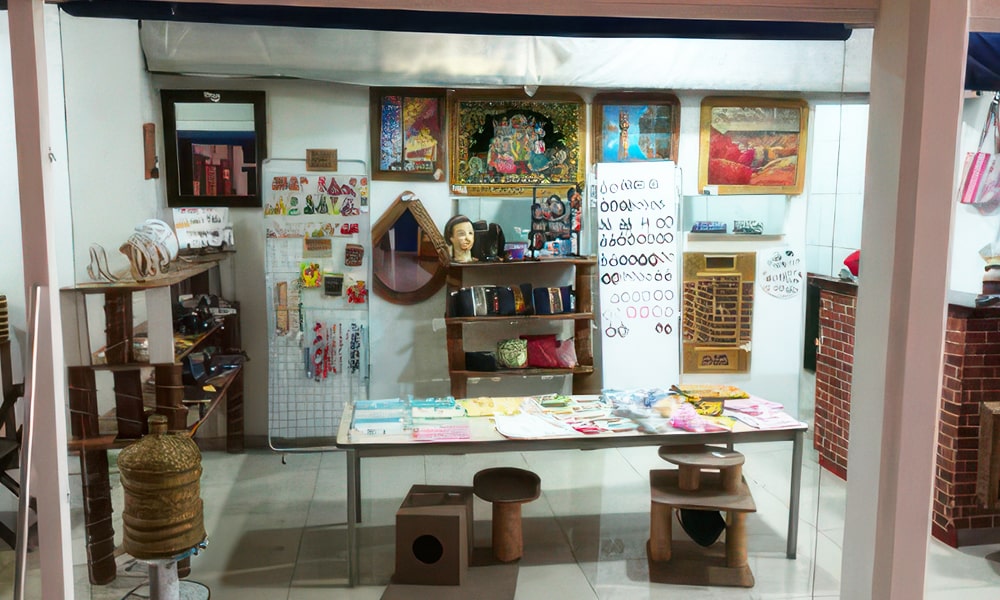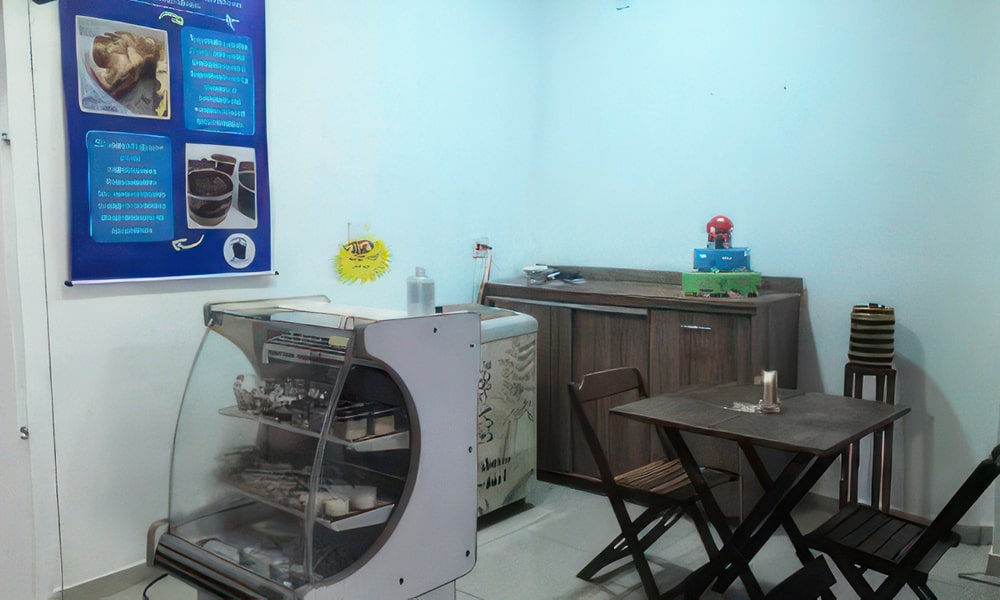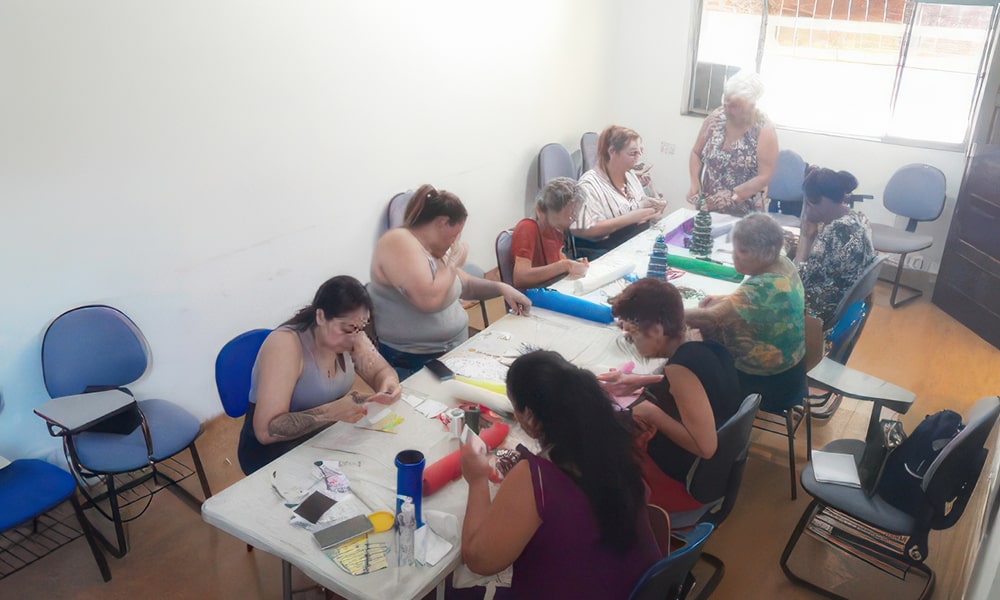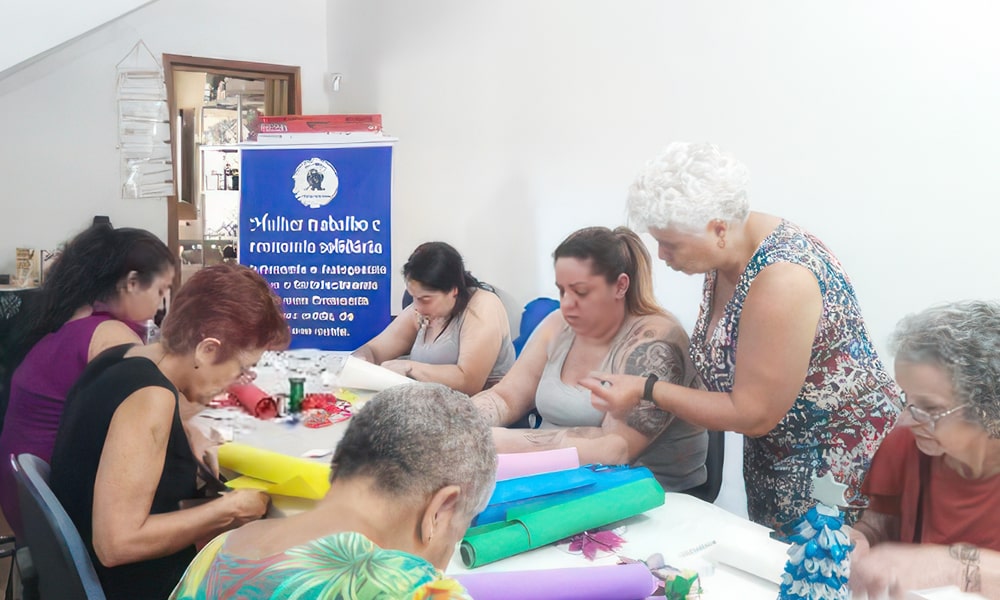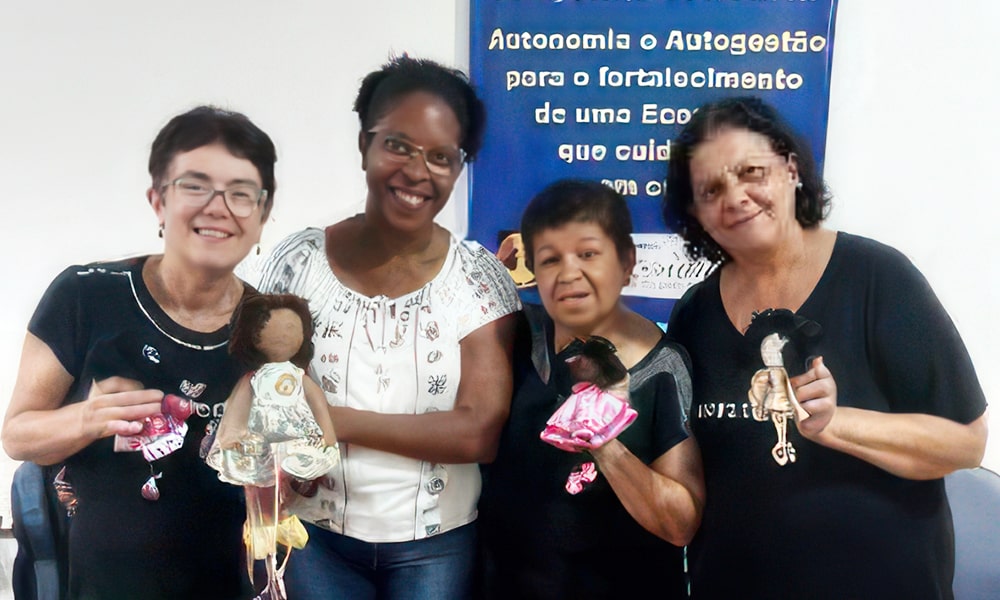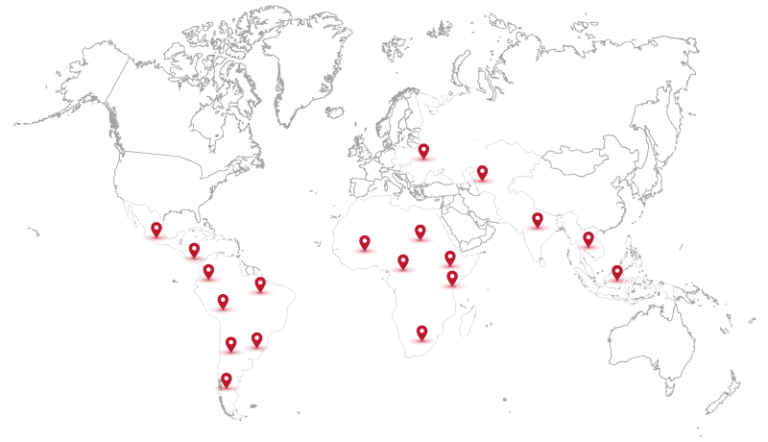ATEMDO has been carrying out activities as planned, highlighting greater emphasis on organisational issues by using ILO Conventions, and also by focusing activities that enhance the well-being of home-based workers. We highlight the following activities from the past three months:
Virtual Meeting on ILO Convention 177
Virtual meeting with speaker, lawyer and sociologist Pery to discuss ILO Convention 177 and also the issue of Social Security in Brazil, a very strong topic that still worries many workers, particularly the issue of MEI – Individual Micro Entrepreneur, a mechanism that does not meet HBWs needs.
In-person Meeting to Discuss ILO convention 190
In-person meeting that was attended by representative Alexandre Castilho, leader of the Oil Workers Union who supported us on the topic and proposed to strengthen dialogues with public authorities to open more debates, mainly on the situation of women in the world of informal work.
Supporting HBWs Mental Health Issues
One of the topics that has greatly concerned us since the beginning of our organisation’s work is the mental health of home-based workers. We have done a lot to take care of the mental health of those who do not have the financial means to hire a suitable professional, and the negative effects that Covid-19 left on these people’s individuals lives was devastating. Today we have a partnership with two psychologists who serve workers collectively and who organised face-to-face meetings. In the last three months we have already held four meetings.
The Social and Solidarity Economy and Solidarity Revolving Funds
This year was a year that strengthened us a lot in terms of alliances and the work done in organising on these two issues. The demand for solidarity finance is great and necessary, the solidarity economy movement through self-management has made a difference for our organisation.
We were in the Legislative Assembly in São Paulo talking to the deputies in a seminar on solidarity finance about the importance of having revolving funds supported and strengthened within the principles of self-management and cooperativism.
Just as the solidarity economy is also important for the organisation of thousands of workers who have abandoned the traditional models of labour and wage relations, people who are no longer fit for the capitalist world of work, so our conversation circles and meetings have reached more and more workers who want to organise themselves within the principles of self-management.
With this commitment we also reach schools where we are taking this methodology of organisation and self-management growth, contributing to the formation of new workers with a more human and less capitalist conscience. Our talks have been held in various places, including our fairs, which also welcomed the initiative so that more workers could learn about this methodology and its principles.
Access to Markets
This theme has become very strong in our organisation, we understand that being a home-based worker in the solidarity economy, therefore independent, is not easy. Generating your own income and financial autonomy requires a lot of effort, which is why this topic is gaining more and more strength and support. Workers are aware of their rights, especially access to the city and we are using local laws to support us and assert our rights.
We are organising themed fairs structured around the principles of solidarity economy and together we are collectively generating income and supporting even indigenous workers who today suffer from the persecution of their people by large farmers who take away their land along with their dignity and human rights.
We prioritise learning through product specialisation workshops, each workshop teaches techniques for creating and finalising a product so that students learn new techniques and can generate income with their creations.
To strengthen collective work, we supported the creation of the ATEMDO food collective, made up of seven women and with space for more people. Today the collective is able to meet demands for large-scale production for events.
To also open up more spaces and opportunities for access to markets, we restructured our store that we maintain in partnership with a local shopping mall. Today, ATEMDO workers can display their products and serve their customers in a safe place to work.


